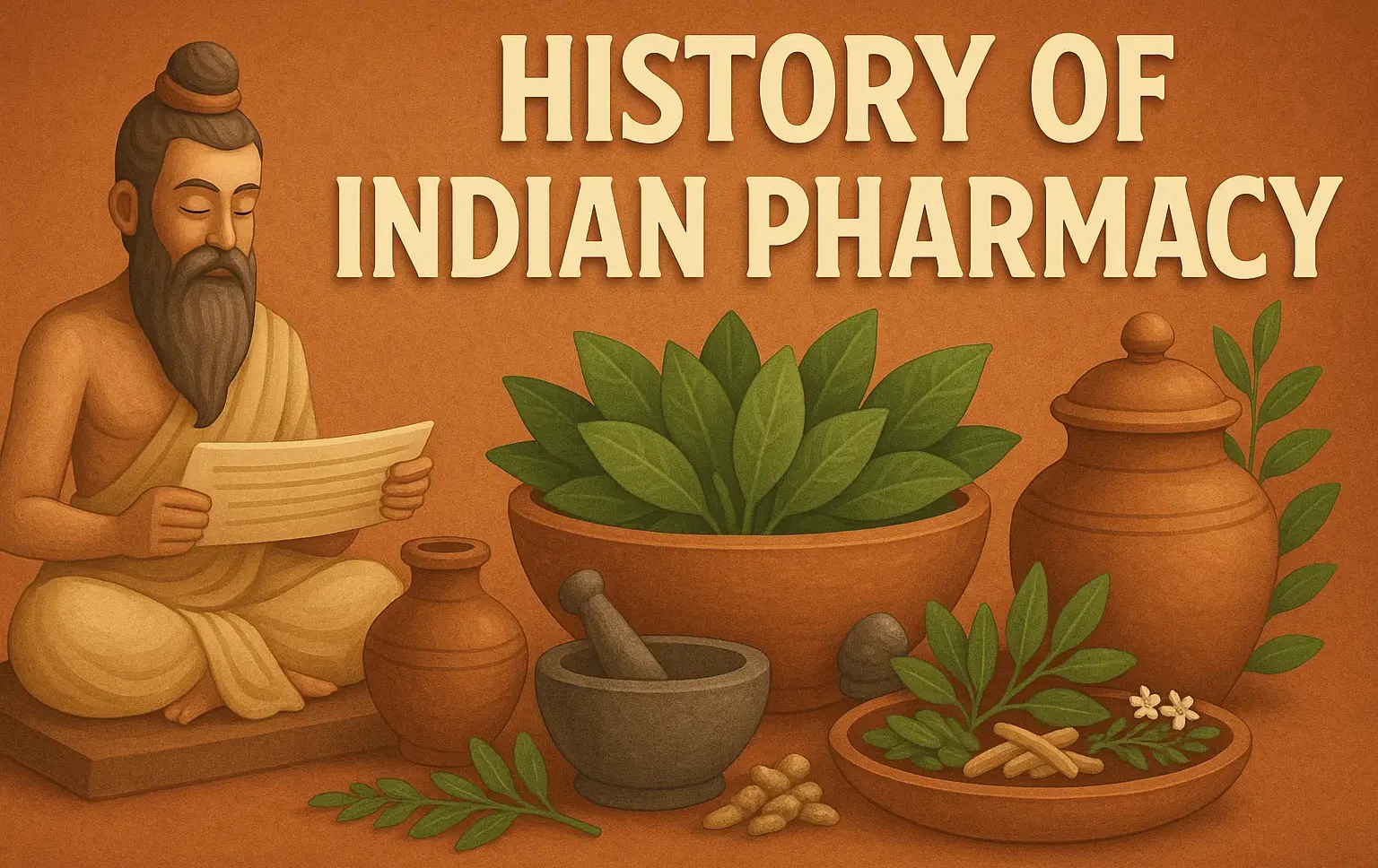- History of Indian pharmacy traces ancient Ayurveda, Siddha, and herbal traditions in drug use.
- The History of the Indian pharmacy profession in India can be divided into four main phases: ancient history, the colonial period, the post-independence period, and the modern era.
-
Ancient History of Indian pharmacy:
- Pharmacy in India has roots in traditional systems of medicine like Ayurveda, Siddha, and Unani.
- Ancient texts such as Charaka Samhita, Sushruta Samhita, and the Atharva Veda detail medicinal plants and their preparation.
- Healers like Vaidyas, Hakims, and Siddhars were responsible for preparing and dispensing medicines.
-
Colonial Period in History of Indian pharmacy:
- British rule introduced allopathic medicine and established medical colleges, promoting Western medicine alongside traditional systems.
- The first pharmacy course was introduced in 1863 at Calcutta Medical College.
-
Post-Independence Period:
- After 1947, the Pharmacy Act of 1948 established the Pharmacy Council of India (PCI) to regulate pharmacy education and the profession.
- The first Bachelor of Pharmacy (B.Pharm) course was introduced in 1953 at the University Department of Chemical Technology, Mumbai.
- The Indian government promoted pharmaceutical self-sufficiency, and the 1970 Indian Patent Act allowed the production of generic drugs, boosting the pharmaceutical industry.
-
Modern Era:
- Economic liberalization in the 1990s increased foreign investments and collaborations, making India a global leader in generic drug production.
- India is now a major exporter of affordable medicines.
- Pharmacy education has expanded with programs like D.Pharm, M.Pharm, and Pharm.D.
- Organizations like PCI, IPA, AICTE, and NIPER play key roles in shaping the pharmacy profession in India.
Advertisements

